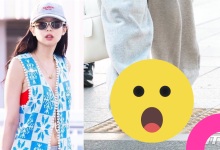Racism Scandal Hits “ExtraL” Duo Doechii & Jennie: Mocking Asian Accents & N-Word Controversy Spark Outrage

On April 27, a video of Doechii, a rising American rapper, went viral on X (formerly Twitter), sparking intense backlash over allegations of racism and racial insensitivity. In the clip — filmed over a decade ago when she was just 15 – Doechii mimics an Asian accent while speaking English, a gesture many netizens condemned as offensive and steeped in harmful stereotypes.
Critics argue that the video perpetuates long-standing prejudices that mock Asian English speakers for their fluency or pronunciation. Some compared her tone to using the N-word, highlighting that just as it is deeply offensive to Black communities, mimicking Asian accents in a mocking way carries the same racial weight. The incident has reignited wider discussions on microaggressions, cultural appropriation, and racial double standards within the entertainment industry.
The controversy erupted at a time when Doechii was riding high on the success of Anxiety, a viral TikTok hit from the expanded edition of her mixtape Alligator Bites Never Heal. With over 4.1 million TikTok videos using the song, her fame had skyrocketed — especially after winning Best Rap Album at the 2025 Grammy Awards, becoming only the third woman in history to achieve this, after Lauryn Hill and Cardi B. Doechii was also named Woman of the Year by Billboard Women in Music 2025.
However, the backlash has cast a shadow over her momentum — especially as it coincides with her recent high-profile collaboration with Jennie of BLACKPINK on the track ExtraL, featured on Jennie’s debut solo album Ruby. Initially praised for their chemistry, the duo is now under fire as past racial controversies involving both artists resurface.
Jennie, too, has been criticized after old pre-debut videos from her trainee days at YG Entertainment were leaked online. In these clips, Jennie, along with BLACKPINK members Rosé and Lisa, can be seen rapping to songs like Swimming Pools (Kendrick Lamar) and 2 On (Tinashe), which contain the N-word. Given that Jennie and Rosé grew up in English-speaking countries (New Zealand and Australia), many argue they should have understood the word’s historical context and its deeply offensive nature.
The resurfacing of these videos — particularly amid Jennie‘s collaboration with Doechii — has fueled a wave of criticism linking both artists as symbols of racial insensitivity in pop culture. Social media users, especially from the international fan community, have been quick to draw parallels, labeling the pair as a “troublemaking duo” and accusing them of hypocrisy for making light of issues that disproportionately affect marginalized communities.
The situation has also spotlighted broader issues around accountability, cultural awareness, and the ongoing challenges of navigating race and identity in a globalized music industry. As old content continues to circulate and public opinion intensifies, both Doechii and Jennie are now grappling with the fallout — not just from fans, but from an industry increasingly unwilling to excuse racially insensitive behavior, regardless of when it occurred.

Not long ago, Doechii made history by winning the Grammy Award for Best Rap Album in 2025 with her mixtape “Alligator Bites Never Heal” (2024), becoming the third woman ever to win in this category (following Lauryn Hill and Cardi B). Her performances of “Denial Is a River” and “Catfish” were praised as the most explosive moments of this year’s ceremony. Additionally, the rapper was honored by Billboard as the Woman of the Year at the Billboard Women In Music 2025 event.


